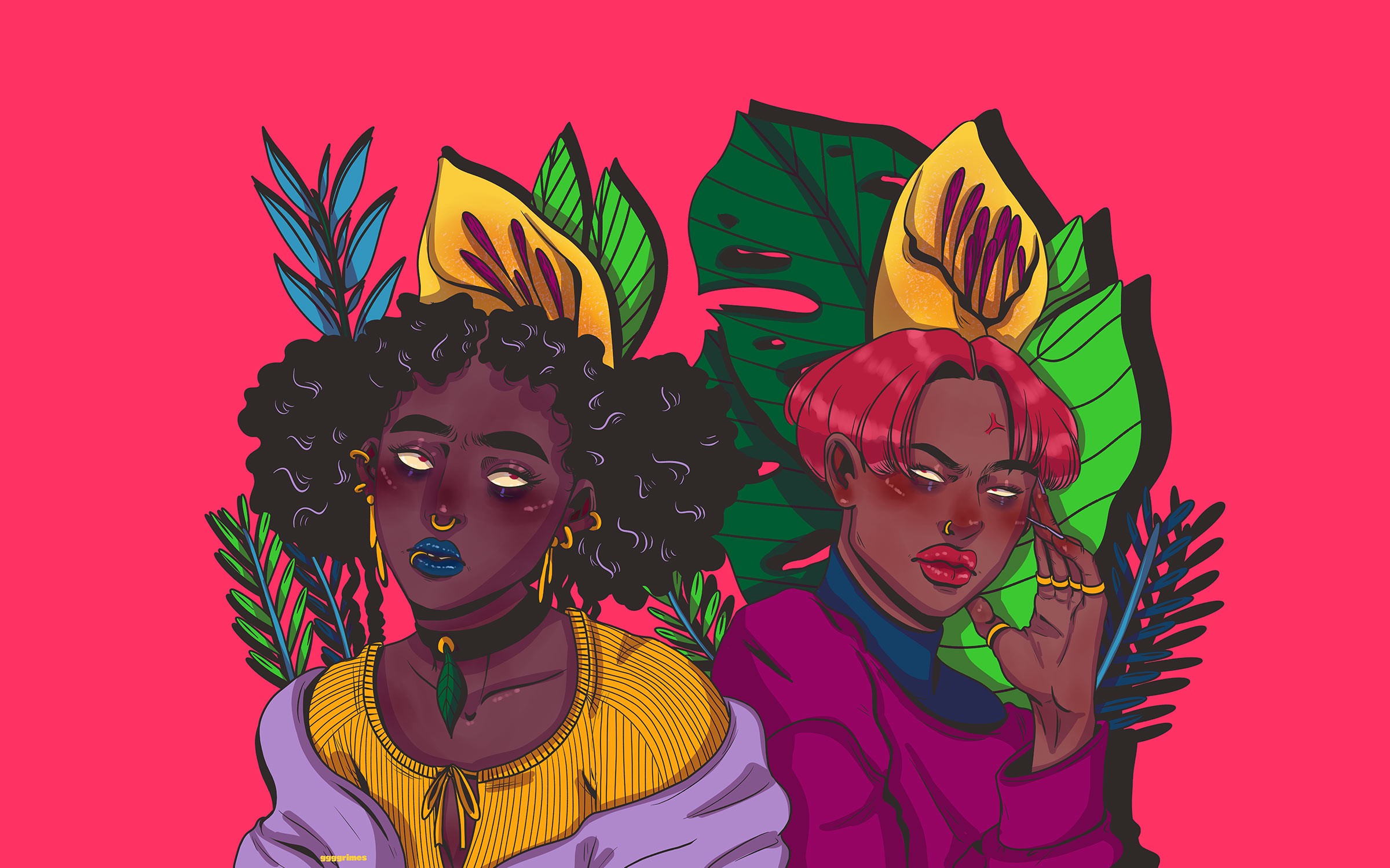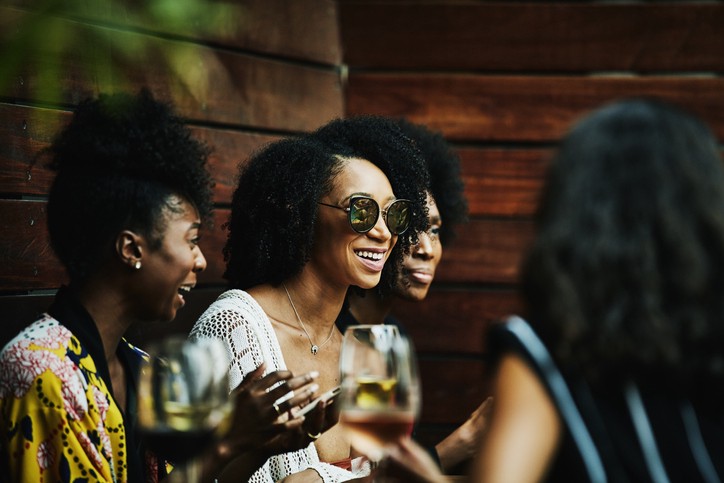If you start practicing now, you can probably eliminate these words from your vocabulary by Black History Month
 Illustration: ggggrimes
Illustration: ggggrimes
 Photo: Thomas Barwick/Getty Images
Photo: Thomas Barwick/Getty Images
3. ?I wish I could wear/get away with/style my hair like that.?
Mainly, you should stop saying this because it?s not true. It?s 2020. Any hairstyle you can fathom is just a lace front and a dream away, and Lord knows there?s no shortage of White women appropriating Black culture, fashion, and even complexion.
The key to understanding the racist impact of this phrase is unpacking the spoken or implied ?get away with? part of the statement. At worst, you?re saying that Black cultural expression is something to be ?gotten away with,? i.e., something inherently bad or wrong. At best, you?re admitting that if there were no social consequences for White cultural appropriation of Black style, you would gladly participate in it. Your Black friend understands this dichotomy even if you aren?t fully conscious of it yet.
4. ?You?re not really Black.?
When I was younger and deeply ensconced in ?talented tenth? mentality, I used to consider this a compliment. After all, I knew what people meant by it: I was well-spoken, intelligent, cultured, respectable. I was all of the things their limited interactions with Blackness taught them most people who looked like me were not.
Every metric my White friends have ever used to measure my Blackness is rooted in false stereotypes. There is nothing exceptional about a Black woman who reads or listens to John Mayer or excels at chemistry or likes beach vacations. Your Black friend enjoying the same activities as you doesn?t make her less Black, but your thinking it does makes you less cultured.
Americans, whether Black or White, have a toxic relationship with race, privilege, and power, and that relationship is sustained in large part by collective denial and willful ignorance.
5. ?I can?t believe it.?
This kind of statement is insidiously harmful because it assumes White ignorance is the equivalent of racial innocence. Robin DiAngelo said it best on a recent episode of Layla Saad?s Good Ancestor podcast: ?White people are not innocent on race. I think it?s a kind of willful refusal to see or to know because people of color, you?ve been telling us forever.?
An unarmed Black child is murdered by the police? You can?t believe it. The president fills his Cabinet with White supremacists? You can?t believe it. A 16-year-old White girl plots to murder a church full of Black parishioners? You just can?t believe it!
I?ll admit, the election of Trump came as a shock to me, not because of what I knew of this country, but because of what I wanted and needed to believe about my country. I understand how hard it can be to admit to oneself the relationship you?re emotionally invested in is actually toxic and abusive, but I also understand that denial helps to keep us in toxic and abusive situations.
Americans, whether Black or White, have a toxic relationship with race, privilege, and power, and that relationship is sustained in large part by collective denial and willful ignorance.
The next time you?re tempted to say you ?can?t believe? something, ask yourself: Why can?t I believe it? Has this happened before? Is this a daily experience for people with a different skin tone, religious background, or ethnicity from me? How does this information contradict what I want to believe about my country? What does it mean for me as a White person to be ignorant about this?
Then take the next step: Google it. White people are often incredulous about things you could easily Google, but instead of looking it up, you expect your Black friends to do the uncompensated labor of explaining their lived experience in a way that you can understand. Not cool, White friend, not cool.
 Simply eliminating these phrases from your speech won?t make you ?more woke,? won?t eradicate racial wealth or health disparities, and won?t save us from four more years of Trump and his supporters. What it will do is show your Black friend(s) that you want to do better, that you?re trying to minimize your racist impact, and that you take responsibility for being a better friend and ally, and in the immortal words of Nina Simone, that?s all I ask.
Simply eliminating these phrases from your speech won?t make you ?more woke,? won?t eradicate racial wealth or health disparities, and won?t save us from four more years of Trump and his supporters. What it will do is show your Black friend(s) that you want to do better, that you?re trying to minimize your racist impact, and that you take responsibility for being a better friend and ally, and in the immortal words of Nina Simone, that?s all I ask.
A version of this article originally appeared in An Injustice! ? a Medium publication about voices, values, and identities.


